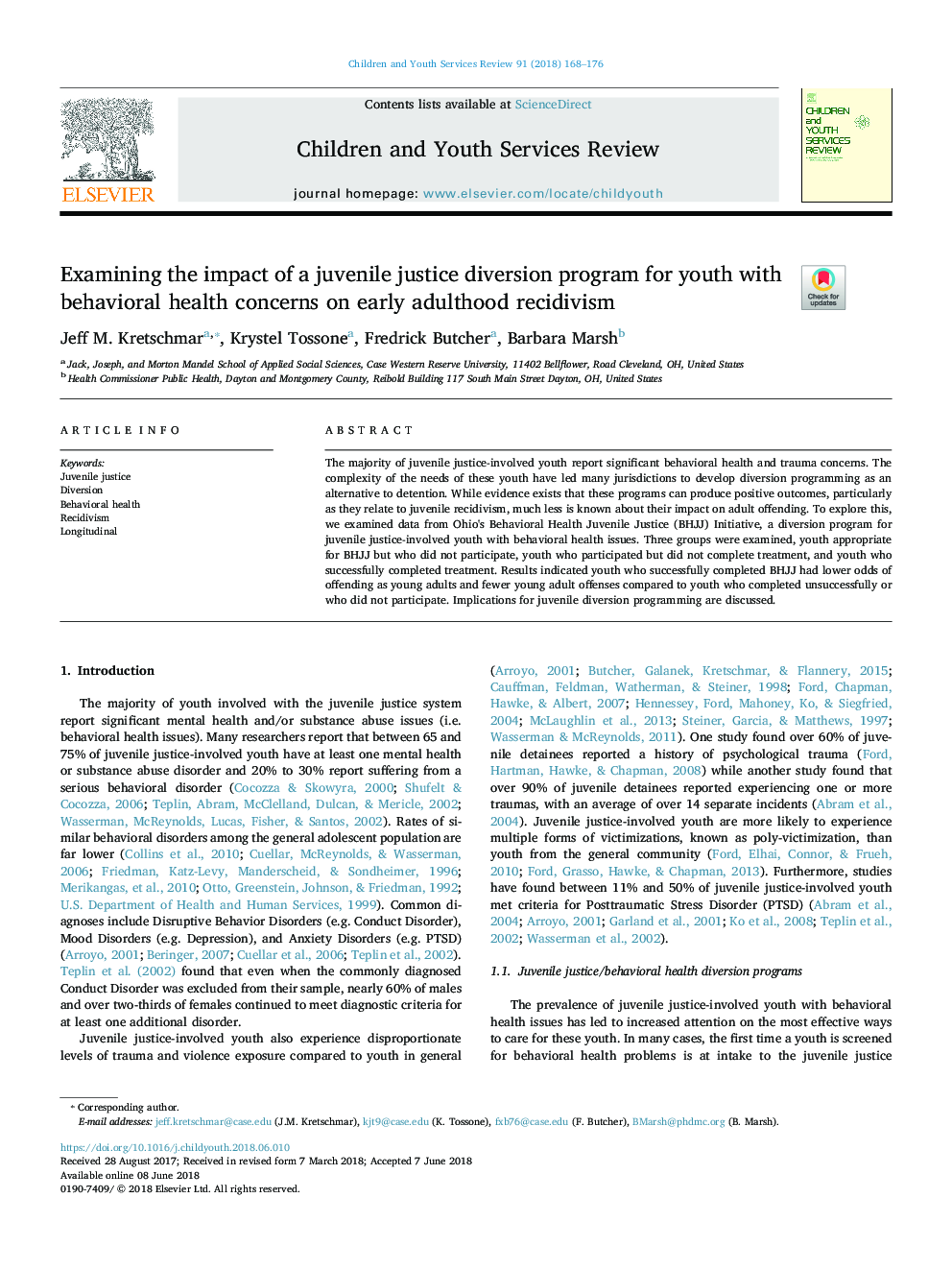| Article ID | Journal | Published Year | Pages | File Type |
|---|---|---|---|---|
| 6832893 | Children and Youth Services Review | 2018 | 9 Pages |
Abstract
The majority of juvenile justice-involved youth report significant behavioral health and trauma concerns. The complexity of the needs of these youth have led many jurisdictions to develop diversion programming as an alternative to detention. While evidence exists that these programs can produce positive outcomes, particularly as they relate to juvenile recidivism, much less is known about their impact on adult offending. To explore this, we examined data from Ohio's Behavioral Health Juvenile Justice (BHJJ) Initiative, a diversion program for juvenile justice-involved youth with behavioral health issues. Three groups were examined, youth appropriate for BHJJ but who did not participate, youth who participated but did not complete treatment, and youth who successfully completed treatment. Results indicated youth who successfully completed BHJJ had lower odds of offending as young adults and fewer young adult offenses compared to youth who completed unsuccessfully or who did not participate. Implications for juvenile diversion programming are discussed.
Related Topics
Health Sciences
Medicine and Dentistry
Perinatology, Pediatrics and Child Health
Authors
Jeff M. Kretschmar, Krystel Tossone, Fredrick Butcher, Barbara Marsh,
